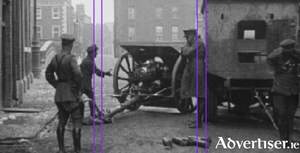Search Results for 'Marion Nikolakos'
5 results found.
The Anglo-Irish Treaty - A flawed document, or the means to achieve freedom?
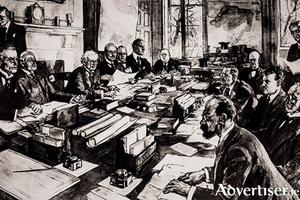
As a direct consequence of the death of three National Army soldiers during a botched raid on the barracks in Headford on Sunday April 8 1923, six anti-Treaty young men, already in Galway jail, were selected for immediate execution. They had been arrested during a raid on their training camp in the Currandulla area six weeks earlier.
‘The girl we left behind us’
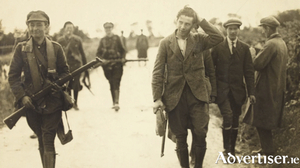
In the immediate aftermath of the recapture of Clifden by the anti-Treaty forces on Sunday 29 October 1922, the town was in a mess. Every house on Main Street had its windows and doors shattered. The streets were littered with glass as a result of explosions. In the houses opposite the barracks ‘not a picture remained on the walls, nor a piece of furniture unscathed’. Porter and spirits ‘flowed out the door’ of Lavelle’s pub. The ‘armoured car’, which had caused so much surprise, and gave cover to allow bombs to be placed, was removed and abandoned at Killery. It was noted that for the first time in living memory there were no church services in Clifden that Sunday.
The Protestant Boys orphanage at Clifden
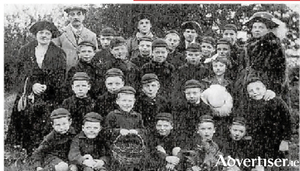
Even though the National Army ousted the anti-Treaty forces from Clifden in August 1922, they had not gone away. They still remained a threatening force, well armed and determined. Ever since the Black and Tan war the so called Connemara Flying Column, still under the leadership of Peter McDonnell, Gerald Bartley and others, were firmly on the anti-Treaty side. They were familiar with the path-ways and mountain hide-outs, which made them virtually invisible in times of pursuit.
Monsignor McAlpine would not take orders from boys he had baptised
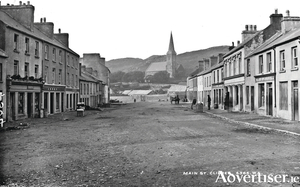
After sporadic fighting in Galway during the summer of 1922, and the occupation of some buildings in the town, including the old RIC barracks in Eglington Street, and the former Connaught Ranger barracks at Renmore, the anti-Treaty forces withdrew into Connermara, and into the east Galway countryside.
